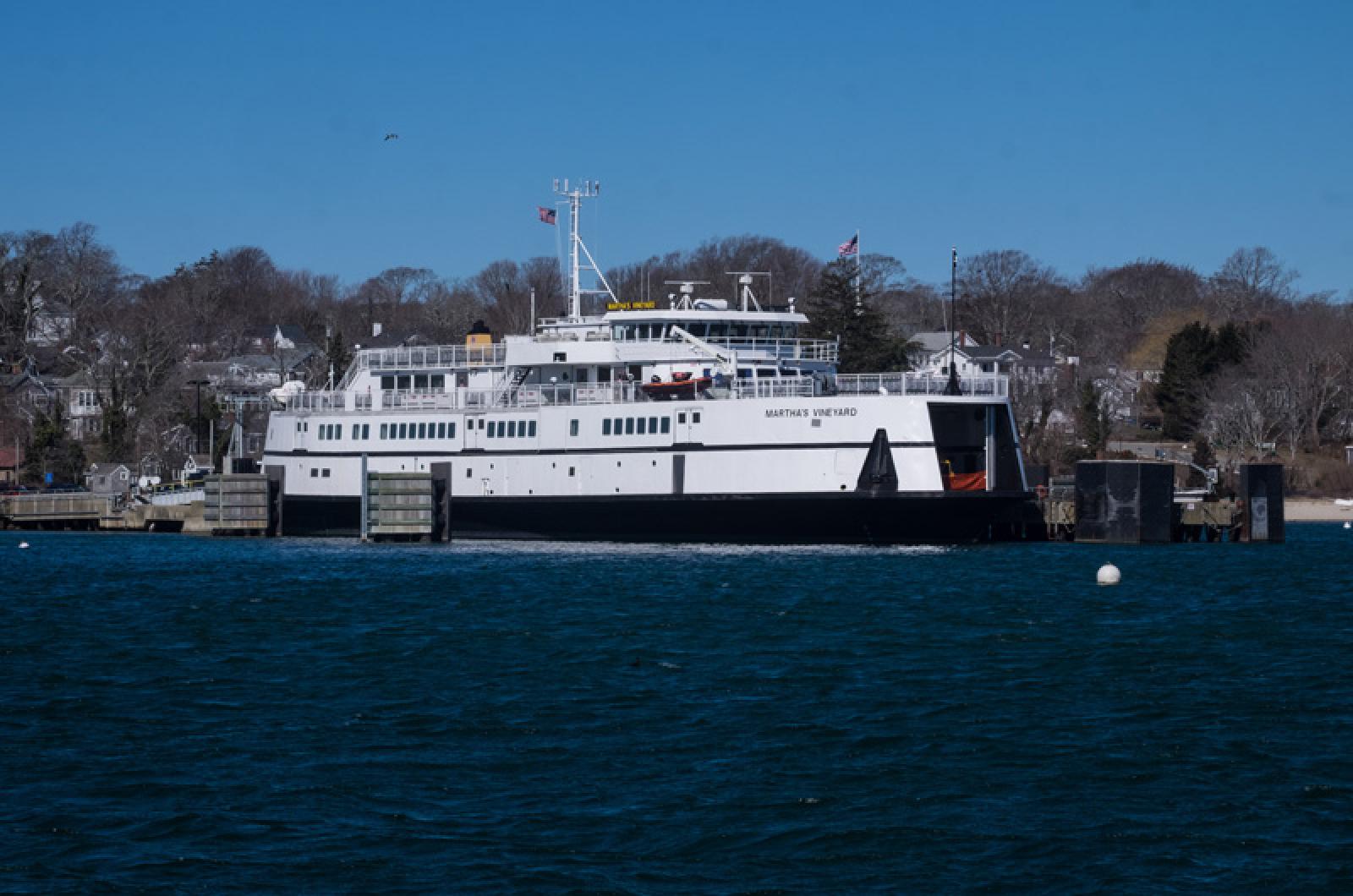Saturday night’s engine failure aboard the ferry Martha’s Vineyard has been traced to a poor installation job by an electrician working on the vessel’s recent $17 million refurbishment.
“The initial problem was a wire on a generator that was improperly crimped by an electrical vendor,” Carl Walker, director of maintenance and engineering for the Steamship Authority, told the boat line’s board of governors Tuesday morning.
After the wire made contact with the engine block and arced, the generator went offline. An alarm and monitoring system had been installed but not activated, so the boat crew had no knowledge that the generator was no longer sending power.
“It started as a smaller problem, but cascaded to a bigger problem,” Mr. Walker said. The alarm system has since been activated, he said, and the cost of repairs will be borne by the contractor, Senesco Co.
The ferry Martha's Vineyard was cleared by the Coast Guard to resume service Monday.
General manager Bob Davis said 72 passengers, 11 crew and three food service workers were aboard the Martha’s Vineyard at the time of the failure, which took place about 15 minutes into the 8:30 p.m. run from Vineyard Haven to Woods Hole. The vessel was towed back to port, where it arrived at almost 2 a.m.
“We apologize to our passengers who were on the boat that night,” Mr. Davis said. He also thanked Tisbury Towing and Transportation, which tugged the ferry back to Vineyard Haven, and the terminal employees and boat crew.
Marc Hanover, governor for Martha’s Vineyard, also praised the crew of the Martha’s Vineyard for their conduct during the emergency.
“The situation was handled flawlessly as far as I’m concerned,” Mr. Hanover said. Islanders who were on the boat told him afterward that crew members handed out sheets and blankets to make pillows for the children on board and kept everyone well informed, he added.
“It was exemplary of how we should treat our passengers,” Mr. Hanover said.
This was the board of governors’ first-ever meeting in the conference room at the boat line’s new administration building on Palmer avenue in Falmouth. Outside the floor-to-ceiling window at the back of the room, ladders and toolbags were still in evidence.
It was an unusual meeting in one other respect: There were two boards and two chairmen at the table. The Port Council, a seven-member body representing all the port towns affected by boat line operations, had missed so many meetings due to weather that the two groups decided to meet jointly Tuesday morning.
Both bodies were unanimous on all items, which included creating the new position of communications director at the Steamship Authority; issuing new RFID commuter cards, to be called Lifeline Cards, with a minimum of five trips per card; and hiring a new general counsel, Terence Kenneally, to replace Steven M. Sayers when he retires in July.






Comments (6)
Comments
Comment policy »